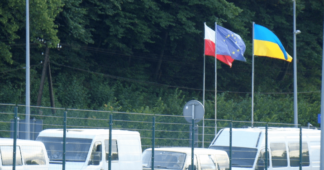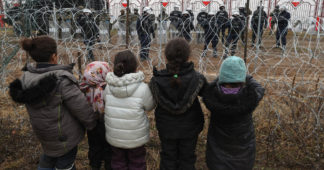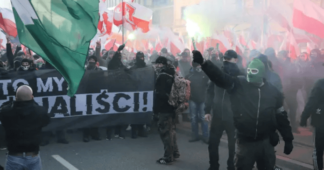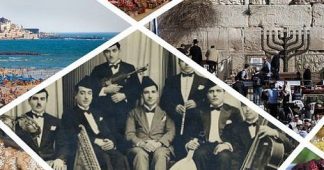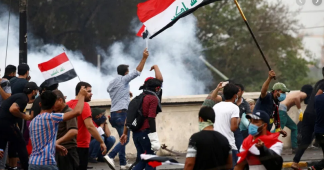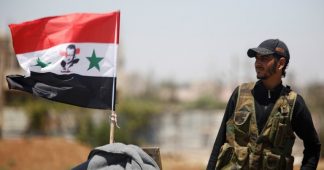Poland-Belarus: Iraqi Kurdish refugees reject offer to return to hardship at home
Spiralling unemployment, poverty and repression in Iraqi Kurdistan has led thousands to attempt to flee to Europe
Alex MacDonald
18 November 2021
photo: Umed Ahmed/Facebook
On the evening of 11 November, Iraqi Kurdish poet and activist Umed Ahmed posted a poem on his Facebook page, along with a selfie showing the forest area on the Belarus-Poland border where he and other refugees were camped out.
Among the lines, written in Sorani Kurdish, were:
“Forgive me for our work
I didn’t want to travel
I didn’t want your cover removed
To wear it for a moment
But you don’t want me
To live on your back.
You are used to carrying thieves and
I’ll spy on you.”
His sentiments about his homeland are likely shared by many of the thousands of Iraqi Kurds who are currently trapped on the border between Belarus and the European Union.
Former inhabitants of Iraq’s autonomous Kurdistan region (KRG), they make up the overwhelming bulk of what has been branded a “crisis” on the doorstep of Europe.
On Thursday afternoon, a plane set off from Minsk National Airport, the first Iraqi repatriation flight to bring back some of its citizens from Belarus.
Russia’s Interfax news agency reported that the Iraqi Airways flight travelling to the KRG capital Erbil and then Baghdad was carrying 431 people.
Ahmed was not among them.
Speaking to Middle East Eye, however, Ahmed was adamant that he would not be coming back and said he was not the only one.
“I don’t agree with the Iraqi government’s proposal at all, and I don’t want to go back,” he said, speaking via WhatsApp from Belarus.
“I told all my friends, and here I tell you: ‘I want to die here and not go back to Iraq, please.'”
A number of travel agencies in Iraqi Kurdistan have reportedly been offering package deals to Minsk, from where Iraqis can expect to pay thousands of pounds to people smugglers to help them enter Europe.
In a tweet on Sunday, KRG Prime Minister Masrour Barzani said that his people had been “deceived by traffickers” and “exploited by networks abroad” and that he was working to ensure the welfare of Kurdish citizens.
But for Ahmed and others, the real exploitation is at home, with rampant unemployment, corruption and political repression making life unbearable.
“In Kurdistan, for 30 years, two mafia, thieving and immoral families have ruled the country,” he said, referring to the Barzani and Talabani families, who have controlled Iraq’s Kurdish areas since 1991.
Having been arrested twice for his political activities, Ahmed fears for his safety at home.
“I am sure that if I go back, the Kurdish authority will kill me, and I have talked to many people who [also] say we will not return and we will make every effort to reach a country that treats us as human beings.”
Widespread problems
The ongoing situation at the Belarus-Poland border has sparked off a furious row between the European Union and the government of Belarusian President Alexander Lukashenko.
The former accuses the latter of having orchestrated an influx of migrants in response to the sanctions imposed on the Belarus administration over his repression of demonstrators in 2020.
On Wednesday, Polish Defence Minister Mariusz Blaszczak said the “crisis” could last for “months or even years”. The ministry said on Thursday that over 100 migrants were detained in an attempt to breach the border overnight.
Ahmed said he had tried several times to get out of Belarus but had faced a harsh pushback on the EU border.
“When we wanted to cross the border, the police prevented and hurt us, until they reached the point where they beat us…and used dogs to stop us,” he said.
“When we wanted to reach…the border, we were beaten again and women and children were hurt.”
The fact that so many Iraqi Kurds are willing to risk the freezing temperatures – which have already seen the deaths of at least 11 migrants, including two children – is indicative of how difficult life has become in the KRG for so many.
The KRG has long projected an image as a beacon of stability and tolerance compared to the rest of Iraq. While the likes of Baghdad and Basra have had to deal with decades of sectarian violence, terror attacks and crumbling infrastructure, Erbil has seen investors flocking in and skyscrapers being constructed, and has even enjoyed a modicum of tourism.
But for the actual residents much of this has masked widespread problems. Unemployment in Iraq as a whole was recorded at almost 14 percent in 2020. Poverty is rising, a situation exacerbated by the Covid-19 pandemic, while disputes with Baghdad over the region’s share of the budget have led to repeated delays in salary payments.
Despite the “relative political stability and economic prosperity”, Shivan Fazil, an Iraqi Kurdish researcher with the Stockholm International Peace Research Institute, said there were “perceptions of widespread corruption and inequality, and political stagnation” in the region and this was driving the recent migration.
Protests and crackdown in Kurdish region
“The disaffected youth, which make up two-thirds of the population, bear the brunt and are faced with an elusive prospect of finding employment, which in turn has trapped them in the pre-adulthood phase of their life, and many feel socially displaced in a region that has undergone a rapid economic and cultural development,” he told MEE.
In late 2020, demonstrations erupted across the Kurdish region over the deteriorating economic situation, leading to the deaths of at least eight people. The offices of the Kurdistan Democratic Party (KDP) and the Patriotic Union of Kurdistan (PUK) were torched as anger overflowed at the inability of the entrenched political establishment to solve their problems.
In response, dozens were arrested by the authorities and many remain in jail. Meanwhile, there have been numerous arrests and crackdowns on opposition journalists and media outlets.
On Tuesday, the Gav News media outlet in Duhok was raided and forcibly closed by security forces, leading the Committee to Protect Journalists to warn that if the forced closures of opposition outlets continued, there would soon be “nothing but the semblance of a free press in Iraqi Kurdistan”.
Iraqi Kurdish analyst Kamal Chomani told MEE that there had been mounting grievances in Iraq’s Kurdish region since the de facto establishment of autonomy in 1991 and cited the increasing crackdown on civil liberties and privatisation of public services as putting further pressure on its people.
“In a system where people feel they are not equal citizens to the political elite, where an autocrat makes decision on a hill in Erbil without returning to the will of people, when the government deals with the regional countries at the expense of the nation…in such political and economic conditions, one may have not many choices,” he said.
“So people thought of having a better future if not for themselves at least for their children.”
‘The reason is political’
Ahmed said his activities as an opposition activist had made him a target and that the decades-long grip of the KDP and PUK was the main reason he would not be returning to his homeland.
“Electricity is not good, roads are bad, people’s financial situation is mostly bad and poverty rates have risen – but the main reason for most of us is this dictatorship and the reason is political,” he said.
MEE contacted a KRG spokesperson for comment on the migrant situation, but had received no response at time of publication.
Though the conditions at the border are harsh and the chances of success seem slim due to the heavy resistance by EU states to allow migrants into their territories, many Iraqi Kurds have chosen to persevere rather than return on Thursday.
“No way we are going back,” said Bahadeen Muhsin Qader an English-speaking Iraqi Kurd who has designated himself as a spokesman for the migrants, speaking to AFP.
“Tell Iraq to make life better, then people will go back.”
Ahmed also said that he would continue to push on into Europe.
“My next move is: To go out of Belarus and reach a peaceful country, a country that respects me, our life is not comfortable here and we have killing and arrests in our own country,” he said.
“I hope to reach a country worthy of life soon.”
Published at www.middleeasteye.net
We remind our readers that publication of articles on our site does not mean that we agree with what is written. Our policy is to publish anything which we consider of interest, so as to assist our readers in forming their opinions. Sometimes we even publish articles with which we totally disagree, since we believe it is important for our readers to be informed on as wide a spectrum of views as possible.
